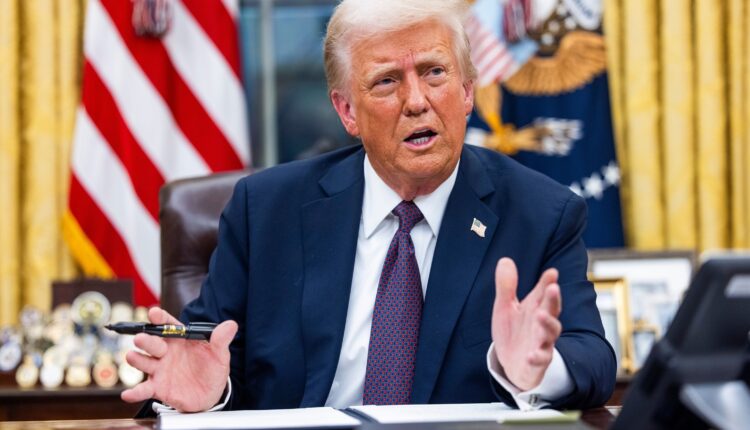The Trump administration’s sweeping overhaul of U.S. foreign aid has thrown the aid and development sector into turmoil, leaving hundreds of contractors in financial distress and forcing agencies to lay off staff amid millions of dollars in unpaid invoices.
Upon taking office on January 20, President Donald Trump ordered a comprehensive review of U.S. foreign assistance and tasked billionaire Elon Musk—who has falsely accused USAID of being a “criminal” organization—with scaling down the agency. The move has led to a dramatic restructuring, with dozens of USAID employees placed on leave and hundreds of internal contractors laid off. Meanwhile, Musk’s so-called Department of Government Efficiency has gutted USAID, Washington’s primary humanitarian arm, which provides billions of dollars in aid worldwide.
The State Department’s blanket stop-work orders have sent shockwaves through the industry, leaving contractors scrambling to stay afloat. Many organizations pre-finance projects and later bill the U.S. government, but the sudden freeze has left them unpaid and uncertain about the future.
For Steve Schmida, co-founder of Vermont-based Resonance, a longtime USAID contractor specializing in innovation, fisheries conservation, and trade, the crisis has become existential.
“We had millions of dollars in invoices due to be paid that had been approved by our clients in the U.S. government,” Schmida said. “We quickly understood that this was a serious threat to our business.”
Facing the reality that 90% of his revenue could disappear, Schmida began laying off and furloughing employees. Once the process is complete, all but about a dozen of his nearly 100 U.S.-based employees will have been affected.
“The last 10 days have been the worst 10 days of my professional life,” he said.
Another USAID implementing partner, speaking anonymously for fear of retribution, revealed that their company has furloughed hundreds of U.S.-based staff and is owed more than $50 million in unpaid invoices from November and December. Both the official and Schmida said they may resort to legal action to recover the funds.
Shock and frustration have spread among USAID staff and contractors, many of whom were abruptly dismissed just days before their benefits and health insurance expired.
Rose Zulliger, a former senior malaria technical advisor for the President’s Malaria Initiative, was among those affected.
“It’s not just the personal stress of I’ve lost my job,” Zulliger said. “It’s also the reality that global health as we know it, and the work that we do, saving lives and also protecting Americans… Our work has been put on pause, and the trust and relationships that we have worked so hard for, that are so integral to the U.S. influence in the global sphere, have all been ruptured.”
In the 2023 fiscal year, the U.S. disbursed $72 billion in foreign aid, covering programs from women’s health in conflict zones to clean water access, HIV/AIDS treatments, and anti-corruption efforts. The aid, which constitutes less than 1% of the federal budget, has been a crucial tool in U.S. diplomacy, helping to counter the influence of China and Russia in the developing world.
However, Trump’s executive orders have had far-reaching consequences for aid workers like Esther Zeledon and her husband, Paul Rivera. Zeledon, a part-time institutional support contractor for USAID, and Rivera, a full-time contractor, lost 95% of their household income overnight. Now, they are considering moving in with Zeledon’s parents and withdrawing from their 401(k) retirement plan to cover expenses.
“It’s horrible because we had planned our entire year with our finances… There’s so much uncertainty,” Zeledon said.
The crisis has sparked protests. On Monday, dozens of USAID staff, contractors, and Democratic lawmakers gathered outside the agency’s Washington headquarters after employees were told the building would be shut for the day.
Among them was Amanda Satterwhite, whose independent contractor job—identifying local organizations abroad to receive USAID assistance—was abruptly put on hold. Now, she is scrambling to make mortgage payments and searching for new employment.
“No one is sure in what state the aid industry is going to return,” she said.
With aid programs halted and contractors left unpaid, the fallout from Trump’s foreign assistance overhaul continues to unfold, raising questions about the future of U.S. humanitarian efforts worldwide.


